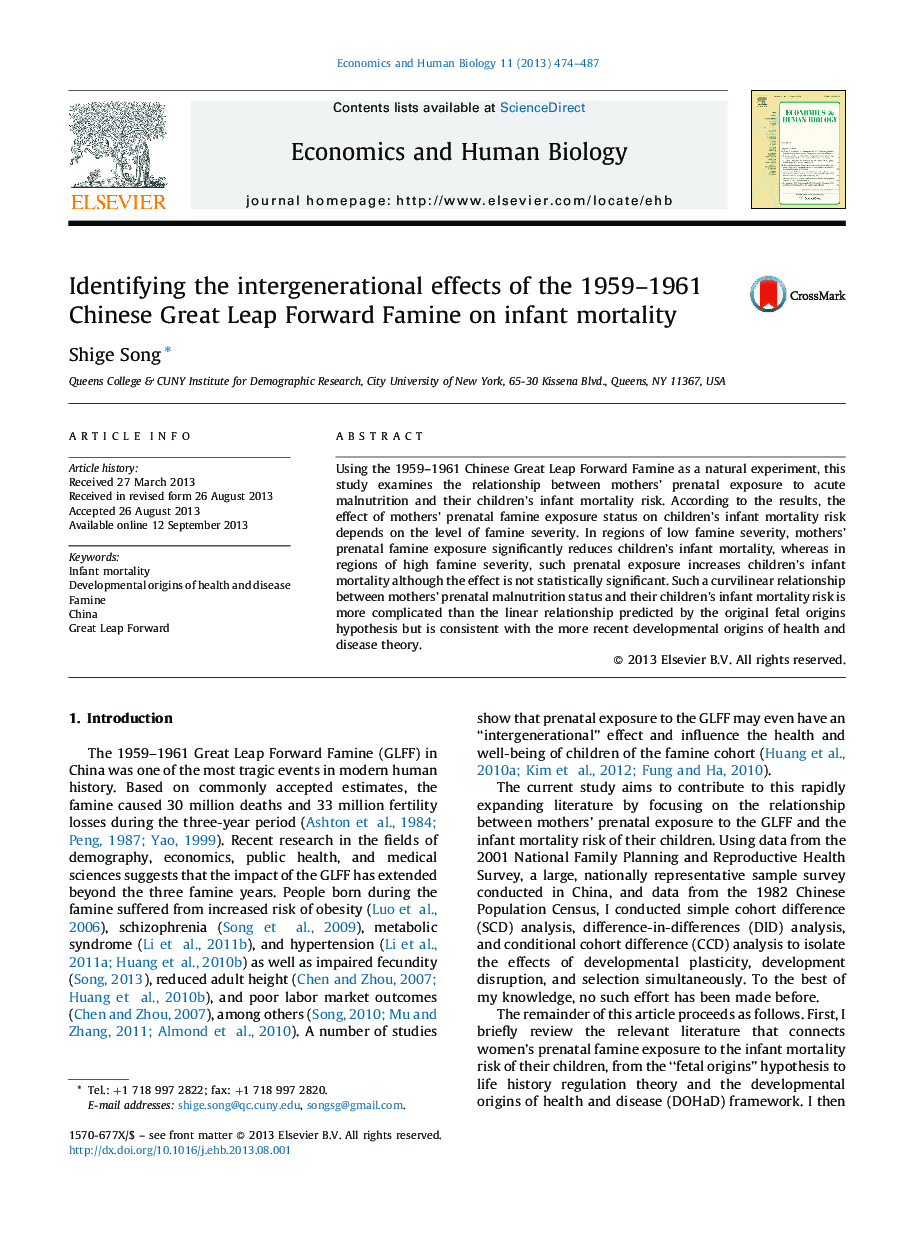| Article ID | Journal | Published Year | Pages | File Type |
|---|---|---|---|---|
| 5057102 | Economics & Human Biology | 2013 | 14 Pages |
â¢Mothers' prenatal famine exposure has significant effects on children's infant mortality risk.â¢In regions of low famine severity, mothers' prenatal exposure reduced children' infant mortality risk.â¢In regions of high severity, such exposure increased children's infant mortality risk.â¢These findings support the developmental origins of health and disease hypothesis.
Using the 1959-1961 Chinese Great Leap Forward Famine as a natural experiment, this study examines the relationship between mothers' prenatal exposure to acute malnutrition and their children's infant mortality risk. According to the results, the effect of mothers' prenatal famine exposure status on children's infant mortality risk depends on the level of famine severity. In regions of low famine severity, mothers' prenatal famine exposure significantly reduces children's infant mortality, whereas in regions of high famine severity, such prenatal exposure increases children's infant mortality although the effect is not statistically significant. Such a curvilinear relationship between mothers' prenatal malnutrition status and their children's infant mortality risk is more complicated than the linear relationship predicted by the original fetal origins hypothesis but is consistent with the more recent developmental origins of health and disease theory.
